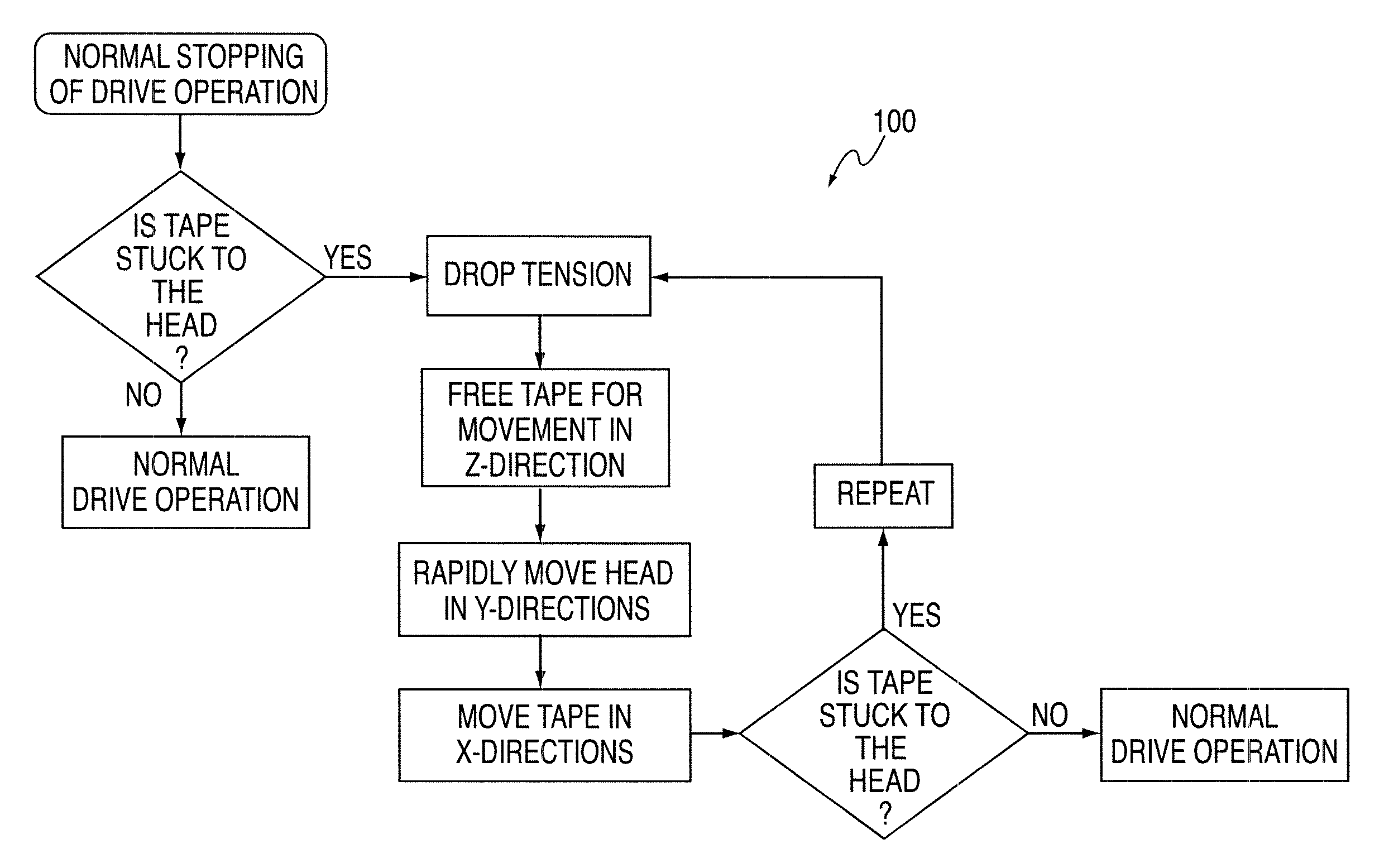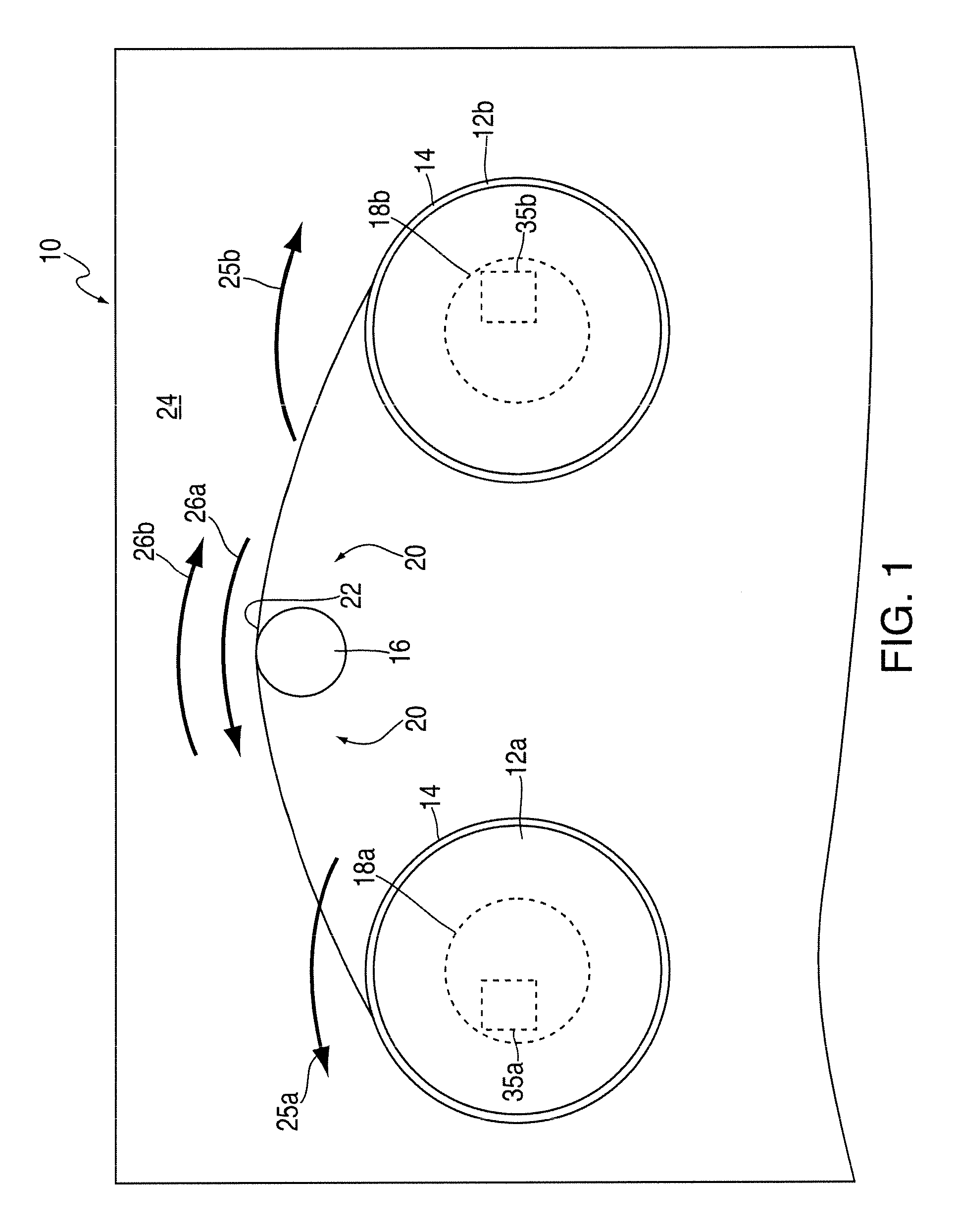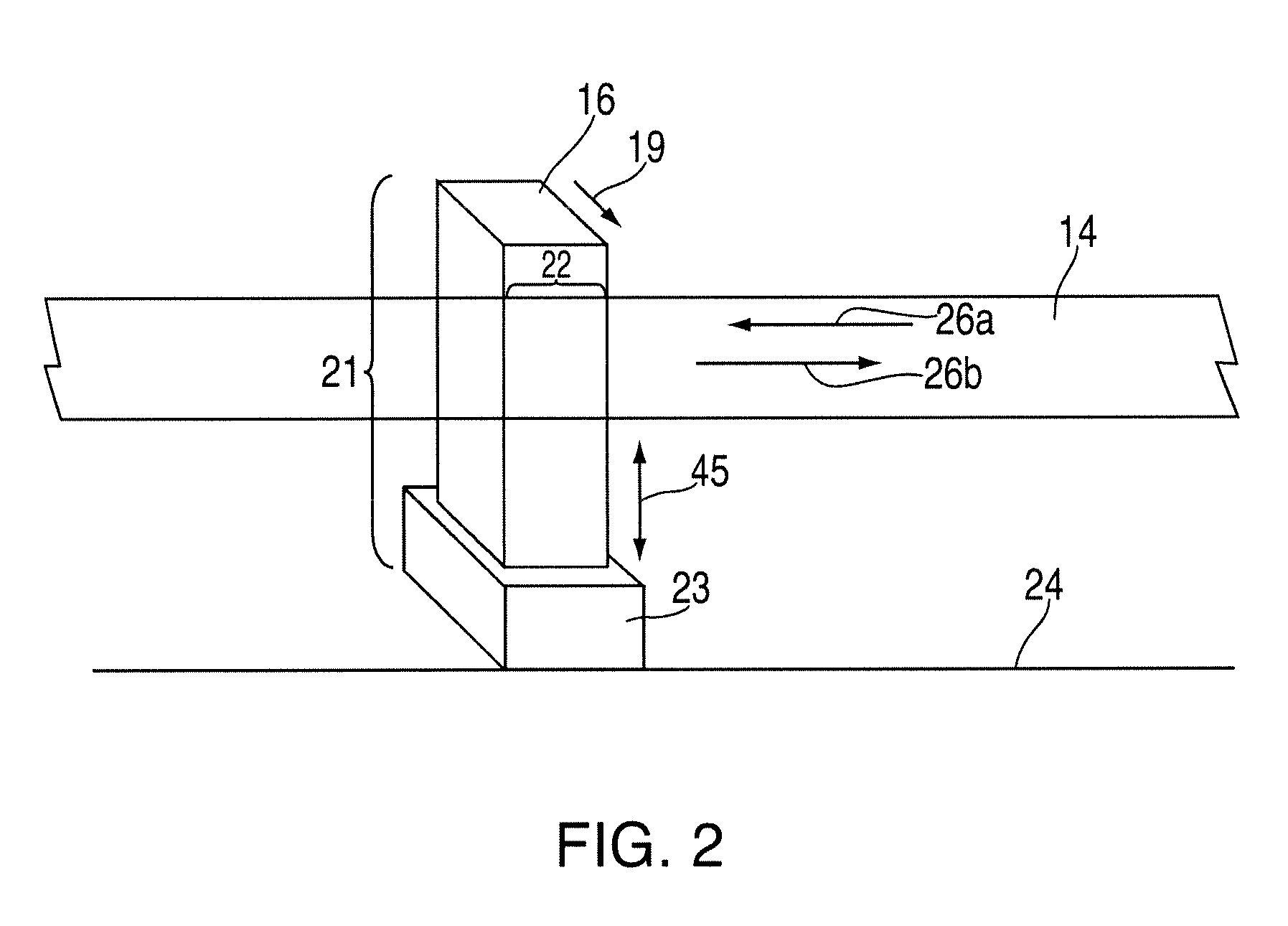Method for reducing occurrences of tape stick conditions in magnetic tape
a technology of magnetic tape and occurrences, which is applied in the direction of moving record carriers backward/forward, mechanical tension control of carriers, instruments, etc., can solve the problems of tape sticking or breaking, tape sticking or falling, and the tendency of the drive to drop tension, so as to reduce the occurrence of tape stick conditions, and the effect of dropping tension
- Summary
- Abstract
- Description
- Claims
- Application Information
AI Technical Summary
Benefits of technology
Problems solved by technology
Method used
Image
Examples
Embodiment Construction
[0013]Referring to FIGS. 1 and 2, there is shown a reel-to-reel tape drive 10. The tape drive 10 includes a bi-directionally rotatable supply reel 12a, a bi-directionally rotatable take-up reel 12b, a length of magnetic tape 14, a head 16, and two motors 18a-b. The head 16 is disposed in a head region 20 between the two reels 12a-b. A portion 22 of the length of tape 14 consistently extends between the reels 12a-b across the head region 20. This portion 22 may be any portion of the length of tape 14, with the portion 22 illustrated in FIG. 1 representing a portion that extends across the region 20 while the drive 10 is experiencing a stop condition (described in greater detail later in the disclosure). The portion 22 contacts the head 16 within the head region 20. During operation of the drive 10, the head 16 reads / writes on the tape via this contact.
[0014]Typically, drives experience two general conditions; operating conditions and stop conditions. Operating conditions include func...
PUM
 Login to View More
Login to View More Abstract
Description
Claims
Application Information
 Login to View More
Login to View More - R&D
- Intellectual Property
- Life Sciences
- Materials
- Tech Scout
- Unparalleled Data Quality
- Higher Quality Content
- 60% Fewer Hallucinations
Browse by: Latest US Patents, China's latest patents, Technical Efficacy Thesaurus, Application Domain, Technology Topic, Popular Technical Reports.
© 2025 PatSnap. All rights reserved.Legal|Privacy policy|Modern Slavery Act Transparency Statement|Sitemap|About US| Contact US: help@patsnap.com



